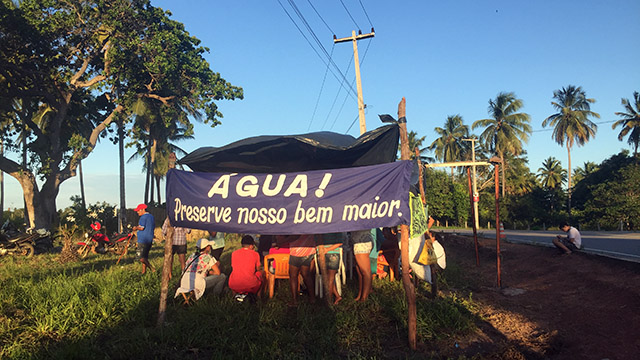Water insecurity is a reality for vulnerable households everywhere, from Flint, Michigan, to São Paulo, Brazil — and from the Texas-Mexico border colonias to Cape Town, South Africa.
To address the complex global problem of water insecurity, the National Science Foundation (NSF) recently awarded a $500,000 grant to several members of the formation of the Household Water Insecurity (HWISE) Consortium to develop the HWISE Research Coordination Network (RCN), including co-principal investigator Sera Young, assistant professor of anthropology and global health in the Weinberg College of Arts and Sciences at Northwestern University.
“My co-PIs and I have long thought that a validated scale to measure household water insecurity will launch a whole new area of policy-relevant inquiry,” said Young, a faculty fellow with the University’s Institute for Policy Research. “This NSF Research Coordination Network Grant will help make this happen in a highly inclusive, impactful and synergistic way.”
Wendy Jepson of Texas A&M University will lead the five-year project, along with Young, Justin Stoler of the University of Miami and Amber Wutich of Arizona State University.
“We will be consolidating our research resources and looking for new ways to study household water insecurity and impacts on health, well-being and livelihoods,” Jepson said. “We’ll be developing a geospatial perspective. And, using the toolkit we’ve taken abroad, we will take a harder look at water insecurity in the U.S. and Canada.”
Even in highly developed counties, household water insecurity can result from aging infrastructure, poverty or other systemic problems.
“The Flint water crisis was not an anomaly. Water insecurity is experienced in many communities,” Jepson said. “Water insecurity among the homeless has been documented by Dr. Wutich. And, my previous research on Texas colonias underscored that despite massive investments, low-income families face hard choices about paying water bills, going to the grocery store or putting gas in the car.”
The RCN will create research infrastructure, working groups and engagement and participation training. The researchers also are planning to develop and test a water security metric — an analytical framework that could streamline water security measurements globally.
This group of household water insecurity researchers in the U.S. has been collaborating since 2014. They have held three workshops and developed a proposal, led by Young, on household water insecurity scale development.
Current HWISE collaborators include more than 40 scholars from 24 U.S. and international institutions, spanning a variety of careers and scientific disciplines. Their efforts are only the beginning of a productive, collaborative research network to advance conceptual and methodological frontiers in water security and environmental social science.
The RCN will include statisticians and experts in political science, nutrition, geography, anthropology and beyond, equipping them to study complex water security problems.


